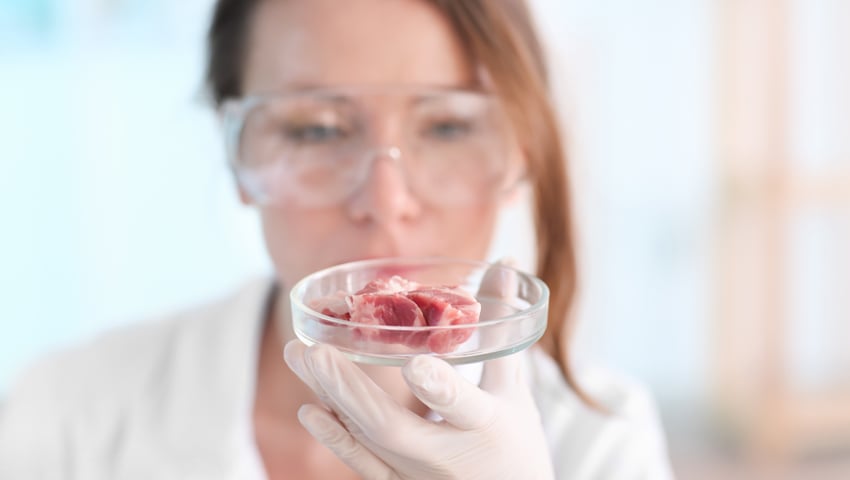UK-wide centre which could soon see alternatives to animal proteins made from plants, fungi, algae and meat grown in labs.
The National Alternative Protein Innovation Centre (NAPIC) has received £15m of funding from the Biotechnology and Biological Sciences Research Council (BBSRC) and Innovate UK to fund the centre dedicated to developing acceptable and planet-friendly alternatives to animal proteins.
The remainder of the funding has come from the centre’s three other partners which include the Universities of Sheffield, Leeds and Imperial College London plus the Hutton.
Animal agriculture is estimated to produce up to a fifth of planet-warming emissions, and with the global population projected to reach nearly 10 billion by 2050, the demand for protein is expected to rise significantly. Some sources, such as the UN Environment Programme, estimate meat consumption alone could grow up to 50 per cent by 2050.
However, alternatives to animal protein such as lab-produced meat can be extremely energy intensive, raising doubts about the degree to which meat alternatives can be genuinely dubbed ‘planet-friendly’. Research has indicated that lab-produced beef can be up to 25-times worse for the climate than standard beef.
Meat produced from fossil-fuel reliant agricultural systems should also be firmly differentiated from regeneratively-produced meat.
The James Hutton Institute is leading on the PRODUCE pillar of the project. Professor Derek Stewart, Director of the Advanced Plant Growth Centre and lead on the PRODUCE pillar said, “The food system is responsible for around 30% of global greenhouse gas emissions with agriculture and livestock systems in particular underpinning these levels. Reducing these emissions will be difficult, especially given an increasing global population and the impacts of climate change.
“We need to find more sustainable sources of protein and thankfully there is a huge biodiversity in non-animal sources of protein, and we’ve barely scratched the surface of this. The PRODUCE pillar will be focused on producing tasty, nutritious, safe, and affordable AP foods and feedstocks to safeguard present and future generations, while addressing concerns about ultra-processed foods and assisting a just-transition for producers. It’s a privilege to work with this team to lead the PRODUCE pillar.”
